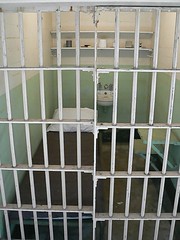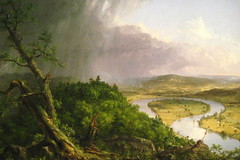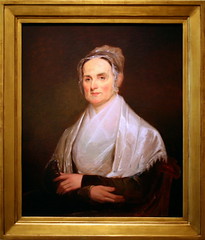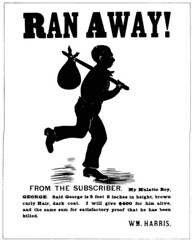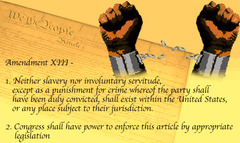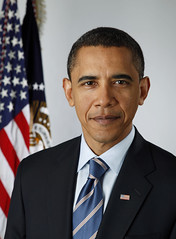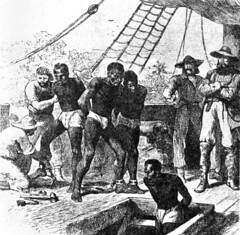AMSCO AP US History Chapter 3 Flashcards
AMSCO United States History 2015 Edition, Chapter 3 Colonial Society in the 18th Century
| 8514204738 | English cultural domination | In the 18th century, cultural life in the colonies was dominated by English culture. Architecture, painting, and literature were strongly influenced by the English. (p. 50) |  | 0 |
| 8514204739 | Benjamin West | Painter who went to England to acquire the necessary training and financial support to establish himself as a prominent artist. (p. 51) |  | 1 |
| 8514204740 | John Copley | Painter who went to England to acquire the necessary training and financial support to establish himself as a prominent artist. (p. 51) |  | 2 |
| 8514204741 | Benjamin Franklin | He was the most popular and successful American writer of the 18th century. (p. 51) |  | 3 |
| 8514204742 | Poor Richard's Almanack | Written by Benjamin Franklin, this book written in 1732 and annually revised, contained aphorisms and advice. (p. 51) |  | 4 |
| 8514204743 | Phillis Wheatley | Her poetry is noteworthy for her triumph over slavery and the quality of her verse. (p. 51) |  | 5 |
| 8514204744 | John Bartram | Self-taught botanist from Philadelphia. (p. 51) |  | 6 |
| 8514204745 | professions; religion, medicine, law | Ministers, physicians, and lawyers were all respected careers in the 18th century colonies. (p. 52) |  | 7 |
| 8514204746 | religious toleration | The overwhelming majority of colonists were Protestants. Jews, Catholics, and Quakers suffered from the most serious discrimination and even persecution. (p. 49) |  | 8 |
| 8514204747 | established church | Churches that were financed by the government. (p. 49) |  | 9 |
| 8514204748 | Great Awakening | This religious movement was at its peak in the 1730s and 1740s. It was characterized by fervent expressions of religious feeling among masses of people. (p. 49) |  | 10 |
| 8514204749 | Jonathan Edwards | This reverend from Massachusetts argued that God was rightfully angry with human sinfulness. Those who repented could be saved by God's grace, but those who did not would suffer eternal damnation. (p. 49) |  | 11 |
| 8514204750 | George Whitefield | He came to the colonies from England in 1739. He spread the Great Awakening throughout the colonies, sometime attracting crowds of 10,000 people. His sermons stressed that God was all powerful and would save only those who openly professed belief in Jesus Christ. He taught that ordinary people could understand scripture without depending on ministers to lead them. (p. 50) |  | 12 |
| 8514204751 | Cotton Mather | This minister from Massachusetts, was the author of several widely read religious tracts. (p. 51) |  | 13 |
| 8514204752 | sectarian | The first colonial colleges were sectarian, meaning they promoted the doctrines of a particular religion. The Puritans founded Harvard in Cambridge, Massachusetts, in 1636. (p. 51) | 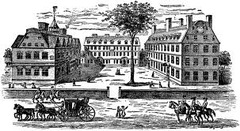 | 14 |
| 8514204753 | nonsectarian | In the mid 18th century, one nonsectarian colleges was founded. The College of Philadelphia (later University of Pennsylvania) was founded, with no religious sponsors. (p. 52) |  | 15 |
| 8514204754 | subsistence farming | In the mid 18th century the colonies had little manufacturing and were devoted almost entirely to agriculture. In New England colonies, most farms were under 100 acres and farming was limited to subsistence levels that provided just enough for a farm family to survive. In the southern colonies, most people lived on small subsistence family farms with no slaves. (p. 48) |  | 16 |
| 8514204755 | J. Hector St. John Crevecoeur | In 1782, this Frenchman wrote , "America is a new man, who acts upon new principles; he must therefore entertain new ideas, and form new opinions. From involuntary idleness, servile dependence, and useless labor, he has passed to toils of a very different nature, rewarded by ample subsistence. This is an American." (p. 45) |  | 17 |
| 8514204756 | colonial families | In the mid 18th century, there was an abundance of fertile land and a dependable food supply in the colonies. This attracted thousands of European settlers each year and supported the raising of large families. (p. 45) |  | 18 |
| 8514204757 | Germans | This group of immigrants settled chiefly on the rich farmlands west of Philadelphia. By 1775, they comprised 6 percent of the colonial population. (p. 46) |  | 19 |
| 8514204758 | Scotch-Irish | These English-speaking people emigrated from northern Ireland. They were known as Scotch-Irish because their ancestors had moved to Ireland from Scotland. By 1775, they comprised 7 percent of the colonial population. (p.46) |  | 20 |
| 8514204759 | Huguenots; Dutch; Swedes | The Huguenots (French Protestants), the Dutch, and the Swedes came to the colonies. By 1775, these groups comprised 5 percent of the colonial population. (p. 46) |  | 21 |
| 8514204760 | Africans | The largest single group of non-English immigrants did not come to America by choice. By 1775, the African American population (slave and free) comprised 20 percent of the colonial population. About 90 percent were in the southern colonies. (p. 46) |  | 22 |
| 8514204761 | immigrants | Newcomers to the colonies, were mostly Protestant, and came from England, Scotland, Wales, and Ireland, and Western and Central Europe. Some left Europe to escape religious persecution and wars. Others sought economic opportunities in farming, or setting up shop as an artisan or merchant. Africans were also brought in large numbers to the colonies, albeit unwillingly. (p. 45) |  | 23 |
| 8514204762 | social mobility | Everyone in colonial society, except African Americans, could improve their standard of living and social status with hard work. (p. 47) |  | 24 |
| 8514204763 | hereditary aristocracy | There was no hereditary aristocracy in the colonies. Their class system was based on economics with wealthy landowners at the top. Craft workers and small farmers made up the majority of the population. (p. 47) |  | 25 |
| 8514204764 | John Peter Zenger | In 1735, he published a true, but unflattering article about New York's royal governor. According to English common law at the time this was a criminal act, but he was acquitted by a jury. This encouraged newspapers in the colonies to take greater risks in criticising the government. (p. 52) |  | 26 |
| 8514204765 | Andrew Hamilton | In 1735, he was the lawyer for John Peter Zenger in the Zenger case. (p. 52) |  | 27 |
| 8514204766 | Enlightenment | In the 18th century, some colonists were attracted to this European movement in literature and philosophy. They believed that human reason could be used to solve most of humanity's problems. They reasoned that while the state is supreme, it is bound to follow natural law based on the rights of individual. (p. 53) |  | 28 |
| 8514204767 | colonial governors | In 1750, there were 13 colonies. In the eight royal colonies the governors were appointed by the King, in the three proprietary colonies the governors were appointed by the proprietors, and in Rhode Island and Connecticut the governors were elected by popular vote. (p. 54) |  | 29 |
| 8514204768 | colonial legislatures | In every colony, the legislature consisted of two houses. In every colony, the members of the lower house were elected by eligible voters. In the royal and proprietary colonies, the members of the upper house were appointed by the king or the proprietor. Only in Rhode Island and Connecticut, the members of both houses were elected by eligible voters. (p. 54) |  | 30 |
| 8514204769 | town meetings | The dominant form of local government in the New England colonies, in which the people of the town would regularly come together to vote directly on public issues. (p. 54) |  | 31 |
| 8514204770 | county government | In the southern colonies, the local government was carried on by a sheriff and other officials who served a large territory called a county. (p. 54) |  | 32 |
| 8514204771 | limited democracy | In the mid 18th century, colonial democracy was limited to mostly white men that owned land. Those barred from voting included white women, poor white men, all slaves, and most free blacks. (p. 54) |  | 33 |




























































